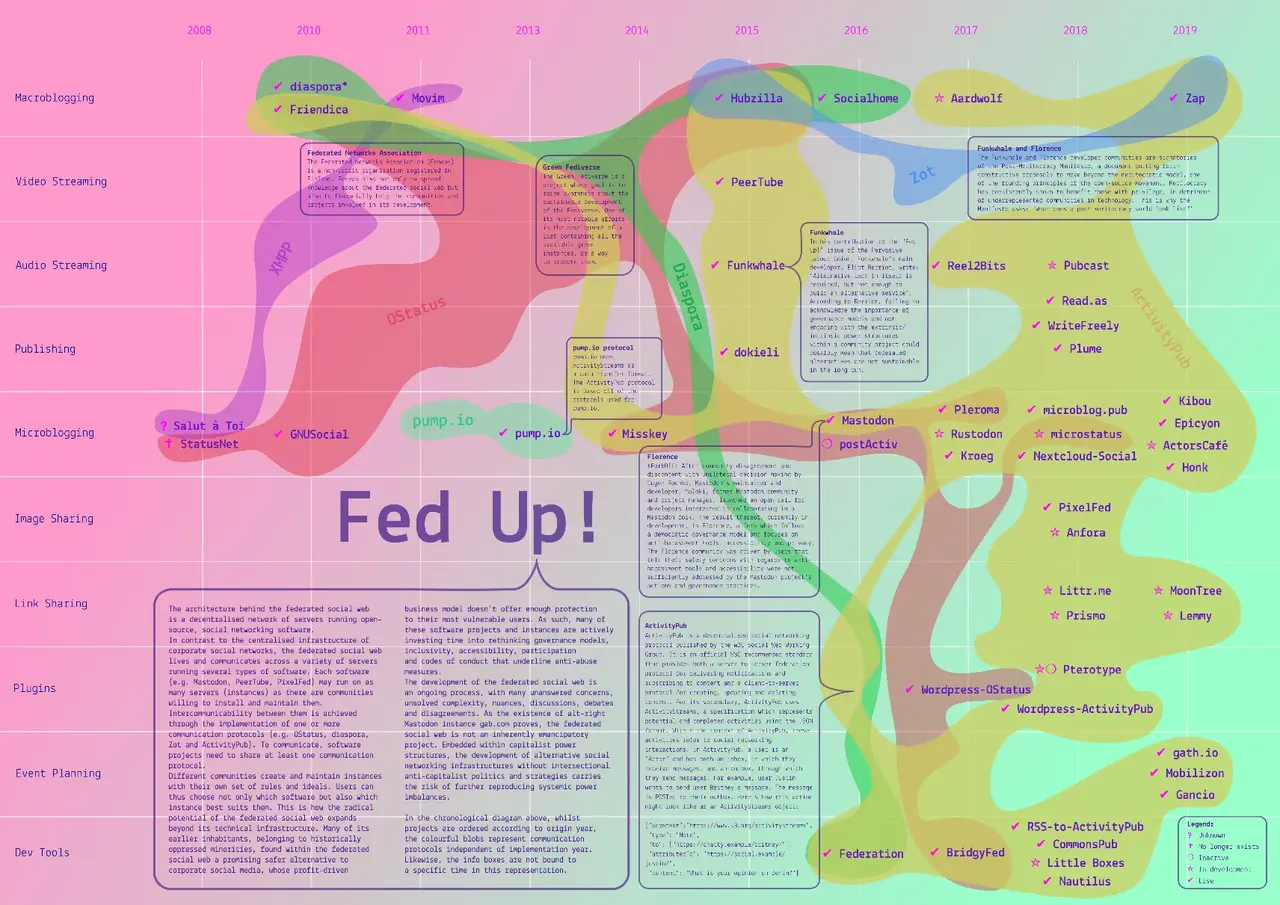workshop on “Infrastructuring alternatives: Mastodon, the Fediverse and beyond”, 6th April 2023
March 14, 2023

Following some preliminary notes on the fediverse last autumn, I’m looking forward to exploring further in this workshop on “Infrastructuring alternatives: Mastodon, the Fediverse and beyond” with Roel Roscam Abbing (Malmö University / lurk.org). Further details here and the event blurb from Roel is copied below.
After many years of inaction and, one might say, neglect on the issue of public digital infrastructures, there is a moment of opportunity in regard to social media systems. The last year saw a marked increase in interest in alternative social media, such as Mastodon, in response to the highly mediatised takeover and subsequent mismanagement of Twitter by Elon Musk. This event served as a sudden wake-up call for different communities which relied on that privatized social infrastructure to, for example, disseminate knowledge.
This workshop brings together scholars, independent researchers and media activists to consider this moment and what action might look like. The workshop introduces the question of alternative social media and how a software like Mastodon, based on its federated topology, allows for different relationships between user communities and their infrastructures. The workshop introduces the software in a hands-on way, both from use and administrative perspectives, as a way to understand what federation entails. The notion of federation was theorized as an organizational form in which local units agree to share governance to scale up organizational capacity and address larger shared issues, without giving up on local diversity and pluralism. Within alternative social media, the federation implies interoperable but separately managed entities which can set their own policy. However, as yet, they have no way of addressing issues that supersede the level of the local. The question thus posed by the workshop is how to scale and support alternative and public digital infrastructures? What approaches for doing so exist, and what can we imagine?